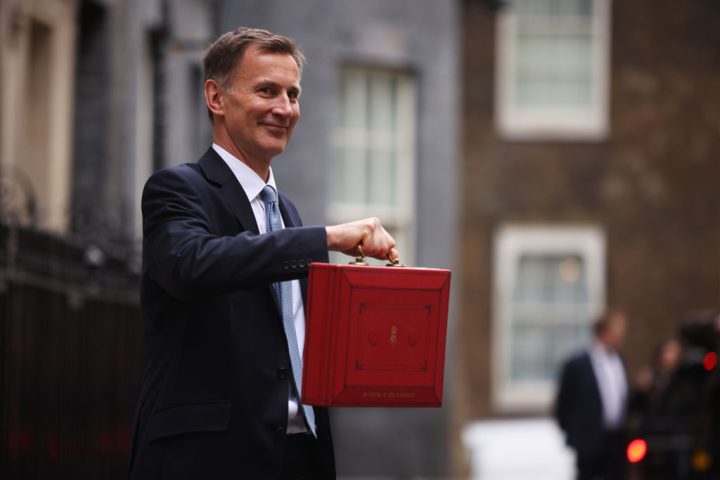How big a deal are the social reforms announced in yesterday’s Budget? They are designed to remove the reasons people have for leaving the workplace and not returning. The two biggest policies are the extension of childcare subsidies and the disability benefit reforms. Both are potent, though not necessarily in the way ministers suggest.
Work and Pensions Secretary Mel Stride has been making a fanfare this lunchtime about the ‘back to work’ measures, which include a white paper on disability benefit reform and £2 billion for supporting disabled people and those with long-term health problems. That white paper has been very long in gestation. It was originally written in 2021 by Chloe Smith and Therese Coffey when they were in the Department for Work and Pensions (DWP), but the document then had its own spell languishing out of work while the Tories dealt with their political dramas.
Smith explains that she was inspired to change the approach away from the work capability assessment because it focussed on the wrong thing, telling Coffee House:
There is a huge economic need to help get more people into the workforce, and an increasing understanding that there’s untapped talent out there particularly among disabled people. There is also a real human tragedy in there being 2.5 million people who are long-term sick, and many within that group who say they want to try work, but can too often be written off.
It’s a crying shame that we put people through an assessment on how unwell they are, where it often appears to people as a test where passing really means failing because they are worried that if they are found to be fit for work then they lose the financial support.
That assessment is going – instead claimants will only be assessed through their entitlement to personal independence payment (PIP). The DWP insists that this will not unfairly penalise those who are off sick for a shorter period of time, rather than with a chronic illness. This group aren’t entitled to PIP, so the department says there will be transitional protection for anyone who isn’t in receipt of PIP.
Those who’ve been working on the paper for a long time say the assessments aren’t as important as the sections on occupational health, which are supposed to help people stay in work in the first place. A lot of this is about mental wellbeing and employers, particularly smaller ones, knowing how to look after their staff so that they don’t end up getting sick at work. But a lot of it is also about those staff getting treatment for mental health problems, and that’s where this gets rather more tricky.
The experience of welfare reform over the past decade has been that these deadlines tend to slip a lot
The NHS has barely existed as a comprehensive service for people with mental health problems at the best of times. These are not the best of times: there are more than a million people waiting for community mental health treatment at the moment. Smith did consider whether the health service might move people who are out of work because they are waiting for treatment up the waiting lists, but has accepted that this would be too difficult in practice. It’s all very well changing the assessment regime for people and enabling them to get better support in work. But if another public service is so poor that they cannot get better and take on more hours or stay in work, then the reforms won’t help as many people as ministers hope.
These reforms are, regardless, going to take a long time to come to fruition: they require primary legislation and the plan is for them to be rolled out to new claimants only from 2026/27 at the very earliest. The experience of welfare reform over the past decade has been that these deadlines tend to slip a lot.
The deadlines may well have to slip for the childcare reforms, too. The early years sector isn’t at all happy about what has been announced. They say there is a capacity problem at the moment, and that funding is already so tight that providers are closing.
When Jeremy Hunt was asked about whether the number of nurseries would rise, and by how much, he demurred, saying, ‘It’s not for government to calculate exactly the number of nurseries, we’re not Stalinist Russia’. But it is also not for government to announce measures which would cause nurseries to close – especially if the whole point of the measures is to allow parents to access childcare earlier and therefore return to work. The potency of this reform is that its unintended consequences could in fact make it much harder for this group to do so.
Given these subsidy extensions are being rolled out slowly, it’s unlikely many parents will be thanking the Tories for helping them get back into work come the next election. But beyond the political calculations here are some real long-term problems with policies which sound good, but lack the foundations to stay upright.







Comments